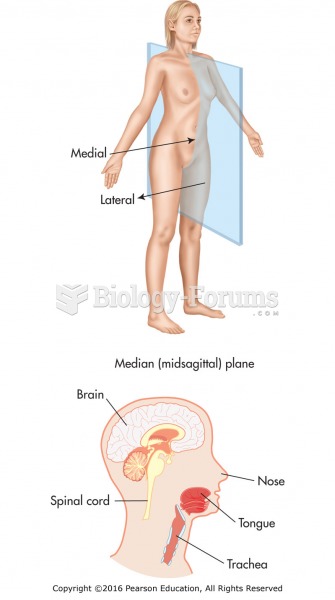|
|
|
Colchicine is a highly poisonous alkaloid originally extracted from a type of saffron plant that is used mainly to treat gout.
The use of salicylates dates back 2,500 years to Hippocrates's recommendation of willow bark (from which a salicylate is derived) as an aid to the pains of childbirth. However, overdosage of salicylates can harm body fluids, electrolytes, the CNS, the GI tract, the ears, the lungs, the blood, the liver, and the kidneys and cause coma or death.
Urine turns bright yellow if larger than normal amounts of certain substances are consumed; one of these substances is asparagus.
Adults are resistant to the bacterium that causes Botulism. These bacteria thrive in honey – therefore, honey should never be given to infants since their immune systems are not yet resistant.
Critical care patients are twice as likely to receive the wrong medication. Of these errors, 20% are life-threatening, and 42% require additional life-sustaining treatments.
 An IAC controls idle speed by controlling the amount of air that passes around the throttle plate. ...
An IAC controls idle speed by controlling the amount of air that passes around the throttle plate. ...
 Apply light tapotement on the head. Tapping lightly with the fingertips works well for this purpose.
Apply light tapotement on the head. Tapping lightly with the fingertips works well for this purpose.





